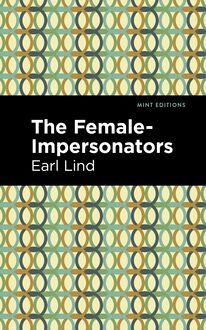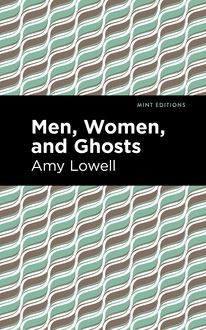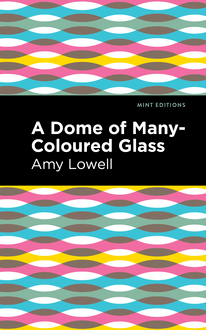-
 Univers
Univers
-
 Ebooks
Ebooks
-
 Livres audio
Livres audio
-
 Presse
Presse
-
 Podcasts
Podcasts
-
 BD
BD
-
 Documents
Documents
-
- Cours
- Révisions
- Ressources pédagogiques
- Sciences de l’éducation
- Manuels scolaires
- Langues
- Travaux de classe
- Annales de BEP
- Etudes supérieures
- Maternelle et primaire
- Fiches de lecture
- Orientation scolaire
- Méthodologie
- Corrigés de devoir
- Annales d’examens et concours
- Annales du bac
- Annales du brevet
- Rapports de stage
La lecture à portée de main
Vous pourrez modifier la taille du texte de cet ouvrage
Découvre YouScribe en t'inscrivant gratuitement
Je m'inscrisDécouvre YouScribe en t'inscrivant gratuitement
Je m'inscrisEn savoir plus
Vous pourrez modifier la taille du texte de cet ouvrage
En savoir plus

Description
Aaron Sisson lives a humble life in the English Midlands. He works as a union official for the coal mines, but his real passion is music. As an amateur, but very talented flautist, Aaron dreams of a big career as a beloved musician. Though, with his small community and unglamorous job at the coal mine, this dream seems unattainable. Trapped in an unhappy marriage, and unsatisfied at work, Aaron becomes more and more frustrated with his life. Finally, when he feels that he cannot take it any longer, Aaron abandons his two kids and wife to run away to Italy. As he begins his journey Aaron feels hopeful for the first time in a long time. However, the journey proves to be more trouble than Aaron expected. When he falls ill, he befriends Rawdon Lilly, a cynical writer. After Rawdon nurses Aaron through his sickness, Aaron is free to continue on to Florence. Upon entering a social circle of intellectuals and artists, he experiences a higher level of conversation—discussions about politics, leadership, and expression. Feeling liberated, Aaron has an affair with an aristocratic woman, excited at all the new pleasures he is experiencing. Of course, it comes at a cost. In a city struggling in the aftermath of a war that wiped out generations, talks of revolution and change echo in the streets, and Aaron’s eyes are opened to social and political problems he had never considered. With complicated characters and beautifully written prose, Aaron’s Rod by the prolific author, D.H Lawrence, is a unique perspective on how World War Ⅰ affected the individual. Looking beyond just the death toll of the war, Aaron’s Rod examines those who were left behind, the political turmoil that followed, and the emotional plight of the individual. With allusions to the bible and complicated questions on both the battle and partnership between art and intellect, Aaron’s Rod poses thought-provoking questions about all levels of Western society. This edition of Aaron’s Rod by D.H Lawrence is now presented in an easy-to-read font and features a unique and eye-catching new cover design. With these accommodations, Aaron’s Rod is restored to its original genius while being updated to modern standards.
Sujets
Informations
| Publié par | Mint Editions |
| Date de parution | 07 mai 2021 |
| Nombre de lectures | 0 |
| EAN13 | 9781513275567 |
| Langue | English |
| Poids de l'ouvrage | 2 Mo |
Informations légales : prix de location à la page 0,0500€. Cette information est donnée uniquement à titre indicatif conformément à la législation en vigueur.
Extrait
Aaron’s Rod
D.H. Lawrence
Aaron’s Rod was first published in 1922.
This edition published by Mint Editions 2021.
ISBN 9781513270562 | E-ISBN 9781513275567
Published by Mint Editions ®
minteditionbooks.com
Publishing Director: Jennifer Newens
Design & Production: Rachel Lopez Metzger
Typesetting: Westchester Publishing Services
C ONTENTS I. T HE B LUE B ALL II. R OYAL O AK III. “T HE L IGHTED T REE ” IV. “T HE P ILLAR OF S ALT ” V. A T THE O PERA VI. T ALK VII. T HE D ARK S QUARE G ARDEN VIII. A P UNCH IN THE W IND IX. L OW -W ATER M ARK X. T HE W AR A GAIN XI. M ORE P ILLAR OF S ALT XII. N OVARA XIII. W IE E S I HNEN G EFAELLT XIV. XX S ETTEMBRE XV. A R AILWAY J OURNEY XVI. F LORENCE XVII. H IGH UP O VER THE C ATHEDRAL S QUARE XVIII. T HE M ARCHESA XIX. C LEOPATRA , B UT NOT A NTHONY XX. T HE B ROKEN R OD XXI. W ORDS
I
T HE B LUE B ALL
There was a large, brilliant evening star in the early twilight, and underfoot the earth was half frozen. It was Christmas Eve. Also the War was over, and there was a sense of relief that was almost a new menace. A man felt the violence of the nightmare released now into the general air. Also there had been another wrangle among the men on the pit-bank that evening.
Aaron Sisson was the last man on the little black railway-line climbing the hill home from work. He was late because he had attended a meeting of the men on the bank. He was secretary to the Miners Union for his colliery, and had heard a good deal of silly wrangling that left him nettled.
He strode over a stile, crossed two fields, strode another stile, and was in the long road of colliers’ dwellings. Just across was his own house: he had built it himself. He went through the little gate, up past the side of the house to the back. There he hung a moment, glancing down the dark, wintry garden.
“My father—my father’s come!” cried a child’s excited voice, and two little girls in white pinafores ran out in front of his legs.
“Father, shall you set the Christmas Tree?” they cried. “We’ve got one!”
“Afore I have my dinner?” he answered amiably.
“Set it now. Set it now.—We got it through Fred Alton.”
“Where is it?”
The little girls were dragging a rough, dark object out of a corner of the passage into the light of the kitchen door.
“It’s a beauty!” exclaimed Millicent.
“Yes, it is,” said Marjory.
“I should think so,” he replied, striding over the dark bough. He went to the back kitchen to take off his coat.
“Set it now, Father. Set it now,” clamoured the girls.
“You might as well. You’ve left your dinner so long, you might as well do it now before you have it,” came a woman’s plangent voice, out of the brilliant light of the middle room.
Aaron Sisson had taken off his coat and waistcoat and his cap. He stood bare-headed in his shirt and braces, contemplating the tree.
“What am I to put it in?” he queried. He picked up the tree, and held it erect by the topmost twig. He felt the cold as he stood in the yard coatless, and he twitched his shoulders.
“Isn’t it a beauty!” repeated Millicent.
“Ay!—lop-sided though.”
“Put something on, you two!” came the woman’s high imperative voice, from the kitchen.
“We aren’t cold,” protested the girls from the yard.
“Come and put something on,” insisted the voice. The man started off down the path, the little girls ran grumbling indoors. The sky was clear, there was still a crystalline, non-luminous light in the under air.
Aaron rummaged in his shed at the bottom of the garden, and found a spade and a box that was suitable. Then he came out to his neat, bare, wintry garden. The girls flew towards him, putting the elastic of their hats under their chins as they ran. The tree and the box lay on the frozen earth. The air breathed dark, frosty, electric.
“Hold it up straight,” he said to Millicent, as he arranged the tree in the box. She stood silent and held the top bough, he filled in round the roots.
When it was done, and pressed in, he went for the wheelbarrow. The girls were hovering excited round the tree. He dropped the barrow and stooped to the box. The girls watched him hold back his face—the boughs pricked him.
“Is it very heavy?” asked Millicent.
“Ay!” he replied, with a little grunt. Then the procession set off—the trundling wheel-barrow, the swinging hissing tree, the two excited little girls. They arrived at the door. Down went the legs of the wheel-barrow on the yard. The man looked at the box.
“Where are you going to have it?” he called.
“Put it in the back kitchen,” cried his wife.
“You’d better have it where it’s going to stop. I don’t want to hawk it about.”
“Put it on the floor against the dresser, Father. Put it there,” urged Millicent.
“You come and put some paper down, then,” called the mother hastily.
The two children ran indoors, the man stood contemplative in the cold, shrugging his uncovered shoulders slightly. The open inner door showed a bright linoleum on the floor, and the end of a brown side-board on which stood an aspidistra.
Again with a wrench Aaron Sisson lifted the box. The tree pricked and stung. His wife watched him as he entered staggering, with his face averted.
“Mind where you make a lot of dirt,” she said.
He lowered the box with a little jerk on to the spread-out newspaper on the floor. Soil scattered.
“Sweep it up,” he said to Millicent.
His ear was lingering over the sudden, clutching hiss of the tree-boughs.
A stark white incandescent light filled the room and made everything sharp and hard. In the open fire-place a hot fire burned red. All was scrupulously clean and perfect. A baby was cooing in a rocker-less wicker cradle by the hearth. The mother, a slim, neat woman with dark hair, was sewing a child’s frock. She put this aside, rose, and began to take her husband’s dinner from the oven.
“You stopped confabbing long enough tonight,” she said.
“Yes,” he answered, going to the back kitchen to wash his hands.
In a few minutes he came and sat down to his dinner. The doors were shut close, but there was a draught, because the settling of the mines under the house made the doors not fit. Aaron moved his chair, to get out of the draught. But he still sat in his shirt and trousers.
He was a good-looking man, fair, and pleasant, about thirty-two years old. He did not talk much, but seemed to think about something. His wife resumed her sewing. She was acutely aware of her husband, but he seemed not very much aware of her.
“What were they on about today, then?” she said.
“About the throw-in.”
“And did they settle anything?”
“They’re going to try it—and they’ll come out if it isn’t satisfactory.”
“The butties won’t have it, I know,” she said. He gave a short laugh, and went on with his meal.
The two children were squatted on the floor by the tree. They had a wooden box, from which they had taken many little newspaper packets, which they were spreading out like wares.
“Don’t open any. We won’t open any of them till we’ve taken them all out—and then we’ll undo one in our turns. Then we s’ll both undo equal,” Millicent was saying.
“Yes, we’ll take them A LL out first,” re-echoed Marjory.
“And what are they going to do about Job Arthur Freer? Do they want him?” A faint smile came on her husband’s face.
“Nay, I don’t know what they want.—Some of ’em want him—whether they’re a majority, I don’t know.”
She watched him closely.
“Majority! I’d give ’em majority. They want to get rid of you, and make a fool of you, and you want to break your heart over it. Strikes me you need something to break your heart over.”
He laughed silently.
“Nay,” he said. “I s’ll never break my heart.”
“You’ll go nearer to it over that, than over anything else: just because a lot of ignorant monkeys want a monkey of their own sort to do the Union work, and jabber to them, they want to get rid of you, and you eat your heart out about it. More fool you, that’s all I say—more fool you. If you cared for your wife and children half what you care about your Union, you’d be a lot better pleased in the end. But you care about nothing but a lot of ignorant colliers, who don’t know what they want except it’s more money just for themselves. Self, self, self—that’s all it is with them—and ignorance.”
“You’d rather have self without ignorance?” he said, smiling finely.
“I would, if I’ve got to have it. But what I should like to see is a man that has thought for others, and isn’t all self and politics.”
Her color had risen, her hand trembled with anger as she sewed. A blank look had come over the man’s face, as if he did not hear or heed any more. He drank his tea in a long draught, wiped his moustache with two fingers, and sat looking abstractedly at the children.
They had laid all the little packets on the floor, and Millicent was saying:
“Now I’ll undo the first, and you can have the second. I’ll take this—”
She unwrapped the bit of newspaper and disclosed a silvery ornament for a Christmas tree: a frail thing like a silver plum, with deep rosy indentations on each side.
“Oh!” she exclaimed. “Isn’t it L OVELY !” Her fingers cautiously held the long bubble of silver and glowing rose, cleaving to it with a curious, irritating possession. The man’s eyes moved away from her. The lesser child was fumbling with one of the little packets.
“Oh!”—a wail went up from Millicent. “You’ve taken one!—You didn’t wait.” Then her voice changed to a motherly admonition, and she began to interfere. “This is the way to do it, look! Let me help you.”
But Marjory drew back with resentment.
“Don’t, Millicent!—Don’t!” came the childish cry. But Millicent’s fingers itched.
At length Marjory had got out her treasure—a little silvery bell with a glass top hanging inside. The bell was made of frail glassy substance, light as air.
“Oh, the bell!” rang out Millicent’s clanging voice. “The bell! It’s my bell. My bell! It’s mine! Don’t break it, Marjory. Don’t break it, will you?”
Marjory was shaking the bell against her ear. But i
-
 Univers
Univers
-
 Ebooks
Ebooks
-
 Livres audio
Livres audio
-
 Presse
Presse
-
 Podcasts
Podcasts
-
 BD
BD
-
 Documents
Documents
-
Jeunesse
-
Littérature
-
Ressources professionnelles
-
Santé et bien-être
-
Savoirs
-
Education
-
Loisirs et hobbies
-
Art, musique et cinéma
-
Actualité et débat de société
-
Jeunesse
-
Littérature
-
Ressources professionnelles
-
Santé et bien-être
-
Savoirs
-
Education
-
Loisirs et hobbies
-
Art, musique et cinéma
-
Actualité et débat de société
-
Actualités
-
Lifestyle
-
Presse jeunesse
-
Presse professionnelle
-
Pratique
-
Presse sportive
-
Presse internationale
-
Culture & Médias
-
Action et Aventures
-
Science-fiction et Fantasy
-
Société
-
Jeunesse
-
Littérature
-
Ressources professionnelles
-
Santé et bien-être
-
Savoirs
-
Education
-
Loisirs et hobbies
-
Art, musique et cinéma
-
Actualité et débat de société
- Cours
- Révisions
- Ressources pédagogiques
- Sciences de l’éducation
- Manuels scolaires
- Langues
- Travaux de classe
- Annales de BEP
- Etudes supérieures
- Maternelle et primaire
- Fiches de lecture
- Orientation scolaire
- Méthodologie
- Corrigés de devoir
- Annales d’examens et concours
- Annales du bac
- Annales du brevet
- Rapports de stage












